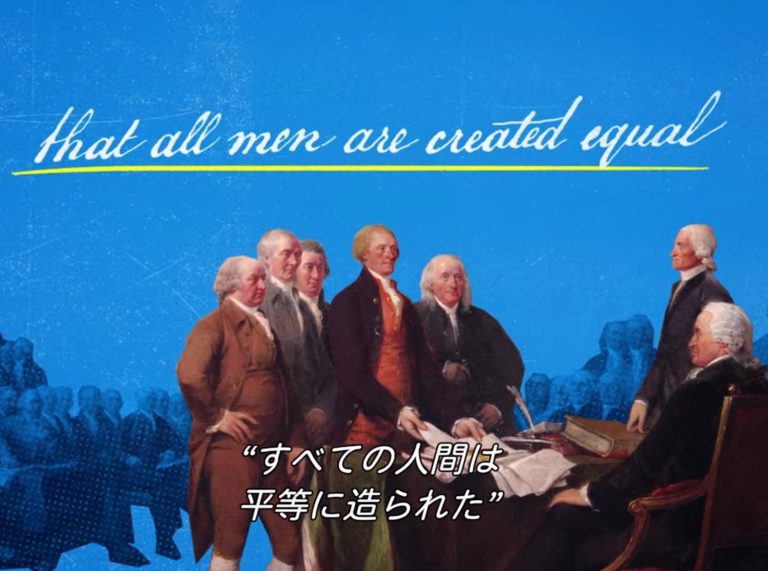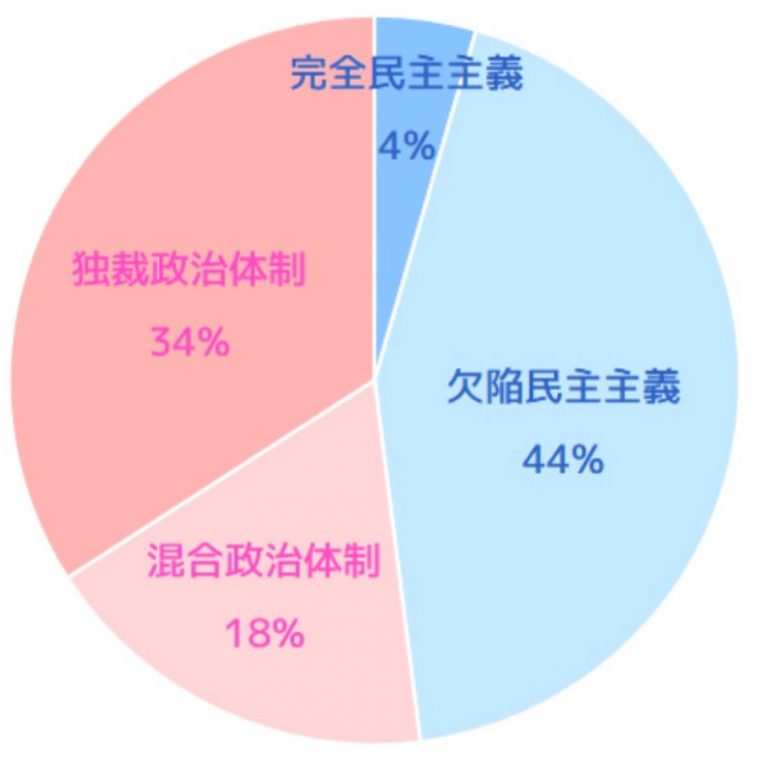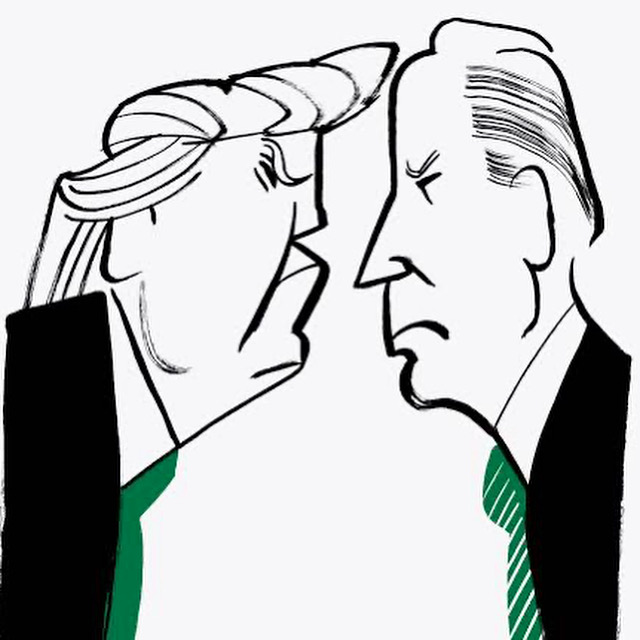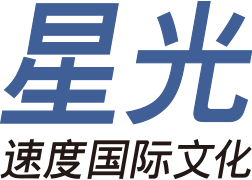I’ve been thinking about democracy as an experiment in political systems.

The U.S. presidential election is only a few days away.
The polls haven’t even begun to open, and the public must be sick and tired of Trump not declaring defeat, but instead thinking of an upset victory by having a strong Republican Supreme Court vote on the resolution, or declaring the mail-in ballot results unconstitutional, or having armed radical supporters block the opposition from voting, or just cursing each other’s candidates.
But this is not gossip news on the other side of the river.
1. what on earth is this democracy we have been led to believe in?
Is this a system that truly reflects the fair and correct will of the people, a question I pondered after watching the Netflix documentary “How the Vote Works.
https://www.netflix.com/title/81304760
Democracy is just a political system that began in the United States 244 years ago in 1776. At that time, there was no mass media, no social networking, and it was very experimental. Even though there was equality under the law, blacks and women did not have the right to vote, and even today the voting rules differ from state to state.
Even in the modern era of 2020, voting in the U.S. requires pre-registration, and in some states registration is only accepted on the day of the vote. In some states, registration is only accepted on the day of the vote, and voters must wait in line for several hours between registration and the polls. (The fact that Japan has a lower voter turnout than the U.S. when it is so easy to vote is a sign that our democracy is in danger of collapse.)
The Democracy Index 2018 (Democracy Index), which assesses the level of democracy in 167 countries and territories around the world, by the British business magazine The Economist (EIU division), shows that the percentage of democracies in the world is 48%, and when autocratic and mixed political regimes are combined, the percentage is already below half. The current situation is that
◆ Reference
Ranking Democracies Around the World Is Japan a Democracy? Dictatorship?
https://mieluka.com/144/
Japan ranks 22nd in the world (7.99 points) and is rated as a “flawed democracy.
The Democracy Index by the EIU scores five categories, “electoral process and pluralism, government functioning, political participation, political culture, and protection of human rights” (in short, how the vote is cast, turnout, freedom of the press, etc.) with a score of 0-10 each, and the overall average score is the overall rating. Japan was also rated as a full democracy until 2014.
In Tokyo, for example, the disparity in the number of votes is twice as great, which is already in violation of the Constitution, but it is not corrected at all. In other words, it is necessary to understand that the democratic system itself is experimental and needs to be updated with the times.
◆ Reference
Vote disparity, up to 2.016 times in the House of Representatives, 6 electoral districts over 2 times
https://www.nikkei.com/article/DGXMZO62328430V00C20A8PP8000/
Even so, democracy has a history of recognizing the rights of minorities, sometimes by listening to the “voices” of those in city government, and through much discussion. Dictatorships have avoided unreasonable incarceration and the exodus of people to become refugees.

2. democracy in jeopardy with online media
Remember the “Cambridge Analytica case” that was uncovered during the last US presidential election in 2016? It was a scandal in which a political consulting firm of the same name obtained a huge number of personal profiles on Facebook and used them in political ads supporting Brexit and Donald Trump to manipulate public opinion.
There are also a number of other countries that are seen as participating in the game of manipulating public opinion in the United States. The public has been brainwashed through the filter bubble function of social networking sites (a system that guides people to information that is convenient for them) before they can even vote. If three of your friends are obese, you will become obese too.
◆ Reference
How to “hack democracy” as told by the parties involved in the Cambridge Analytica case (Kamome Ueda)
https://note.com/tuttlemori/n/nca7d25f51a9c
Netflix “Gray and Huck: The Worst Scandal in Social Networking History”
https://www.netflix.com/title/80117542
The U.S. State Department prepared for hacking from Russia and Iran in this presidential election. It called for a reward of up to $10 million (approx. 1,057.91 million yen) for information on foreign powers that intervened in the election through cyber attacks.
There are three main methods.
Obtaining inside information by ficings to related parties
The use of SNSs to disseminate large amounts of false information and information that provokes emotional reactions.
Cyber attacks on election-related infrastructure
◆ Reference
Political Intervention Cyber Activities by Russia – Methods and Intentions for Intervening in the 2016 U.S. Presidential Election
https://www.spf.org/iina/articles/kawaguchi_01.html
Can “Russian Intervention” in the U.S. Presidential Election Really Be Prevented? Some states are turning their security budgets over to Corona countermeasures.
https://toyokeizai.net/articles/-/372012

3. democracy in the future
We must change this 244-year-old democracy in a way that is relevant to the 21st century online world.
The column by Assistant Professor Narita is interesting.
Democracy, he says, should change with the social changes of the times and the evolution of technology. Otherwise, as in the U.S. in recent years, social networking sites can be manipulated to create public opinion.
Three proposals have been made.
Liquid Democracy
In a thoroughly DXed age, all voting should be consolidated into online voting, with each vote broken down and voted for by policy in 0.1 increments. Instead of voting for each politician or party, people will vote according to their interests and stake in individual issues such as childcare, pensions, and work styles.
A small but diverse way to solve problems instead of a ruling party and an opposition party because it will become more policy-oriented than person-oriented.
Data Democracy
I’m going to stop voting. Elections instill in people a mentality similar to that of a festival, so they are inevitably pulled by the ideas of others. Therefore, we will continue to collect data on the unconscious desires of the voters and the public.
The data collection method is based on the past election behavior of each individual, social networking sites, and surveillance cameras installed on the streets, which collect data on how people behave and what they say. The data is collected by listening to what people are saying and expressing in their own voices on the streets. The hidden voices are then discovered.
bypass democracy
Ensure that major decisions and changes can be made by a few “strongmen” with as little democratic process as possible.
The idea is that making policy decisions based solely on democratic maxims stifles innovation.
Democracy, a system in which everyone is given equal rights, is a system that discourages people with unique talents and experiences from opening the frontier and generating value and difference. The idea is to “bypass” such democratic processes as much as possible.
◆Reference: Yale University, Assistant Professor Yusuke Narita, “Are Elections and Politicians Really Necessary?
https://globe.asahi.com/article/13857057

Conclusion
Do you get the sense that our current idea of “democracy” no longer fits the infrastructure of the 21st century?
We should change to a democracy that fits the times to continue to advance the inequalities among people that democracy has solved in the past. To do so, I think we need some policies.
DX (Digital Transformation) by State
Reduce the digital divide by lowering the cost of smartphone usage
Streamline documents, stamping, and notification work to government offices, etc., to eliminate waste.
Create an infrastructure and society where online voting is feasible.
New globalization based on ICT
Partner with other DX-advanced nations to promote globalization, which has been set back in Corona, through digital power.
Sharing of vaccine development, flexibility in movement of people, and excellent foreign brains like Estonia.
incorporate, etc. As Japan faces a declining birthrate and an aging population, it will boldly utilize not only the young labor force from overseas, but also the brains of its people through the Internet to carry out its policies.
Diversity in Policy Execution
Create an online infrastructure that allows for ubiquitous (ubiquitous) budget execution, rather than just policy implementation through unilateral and centralized budget allocation.
Partnerships through private-sector activities (technology), creation of mechanisms to implement even minor policies through crowdfunding, early problem solving through constructive journalism, etc.
◆ Reference
What is Denmark’s first “Constructive Journalism” (constructive reporting)?
http://spdy.jp/news/s5775/

Finally, I would like to quote the words of Professor Shinya Yamanaka, Director of the iPS Cell Research Institute, Kyoto University.
Darwin said that in evolution it is not the strongest or the smartest that survive, but the most adaptable.
Adaptability depends on how much diversity we can retain. However, I believe that humans are now denying such diversity. I feel that we are remaking organisms in a direction that we think is good for them.
When living organisms lose their diversity and become more homogenized, a slight change in the environment can quickly expose their weaknesses. I believe that today’s ever-evolving technology poses a serious danger to our society.”














